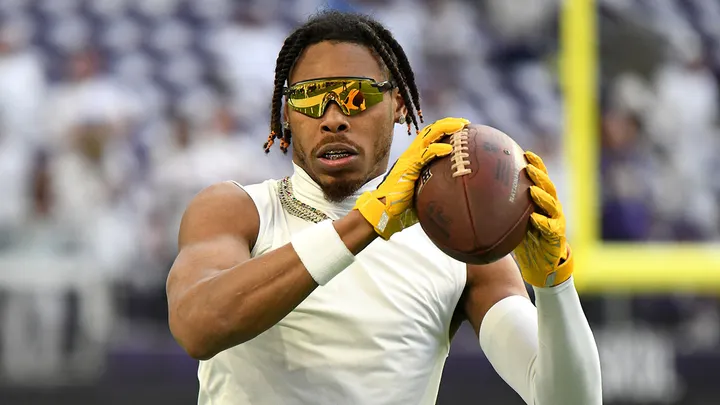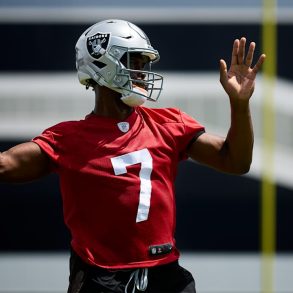Earlier this week, we simplified the situation concerning the Vikings and wide receiver Justin Jefferson: Either pay him or trade him.
If they opt to trade him (although they’ve stated they won’t), any team acquiring him will need to compensate him accordingly. Eventually, he’ll secure his second contract. So, what might it entail?
We recently pointed out that contracts labeled as the highest for receivers often include years that inflate their perceived value.
No one is earning $30 million annually; not even close. Even $25 million annually isn’t accurate when considering the contract’s total value upon signing.
Jefferson’s fifth-year option has him set to earn $19.743 million. A new contract would likely replace this with a multi-year deal, ideally with two or three fully guaranteed years (three being preferable). However, valuing it based solely on the receiver market might not be wise.
General Manager Kwesi Adofo-Mensah stated at the Scouting Combine, “We believe he’s the best wide receiver in the league and should be compensated as such. We consider him one of the best non-quarterbacks in the league and believe he should be compensated accordingly.”
The highest-paid non-quarterback, 49ers defensive end Nick Bosa, earns $34 million annually in new money.
Last year, Bosa’s earnings were set at $17.8 million. He inked a five-year extension worth $170 million. Essentially, this amounts to a six-year deal valued at $31.3 million annually upon signing.

Moreover, this was before the salary cap surged to $255.4 million for 2024. For Jefferson, the crucial benchmarks are $34 million yearly in fresh funds and a total value of $31.3 million.
The duration and arrangement of the deal are also significant. Will it front-load to benefit the team later on? Or perhaps back-load, increasing the chances of an early exit? Alternatively, might it be a shorter extension, say, for three years?
Let’s consider a three-year term. Assuming the initial three years are entirely guaranteed, and with $19.743 million for 2024, a four-year, $121.743 million contract achieves Jefferson’s $34 million annually in new money (matching Bosa) and $30.43 million in total value at the time of signing.
This would surpass the current receiver market, where the best deals fall below $24 million yearly in total value upon signing. However, Jefferson, as asserted by Adofo-Mensah, transcends all positions but quarterback. Thus, a true $30 million in real value at signing seems fair.
In essence, this should be straightforward. If the Vikings are playing games (as some suggest), it’s time to cease. Either pay Jefferson or trade him to a willing party.
Given proper motivation, this could be accomplished in a day by the Vikings. Until they do, the possibility remains that, within the next four days, he could be with a new team.







